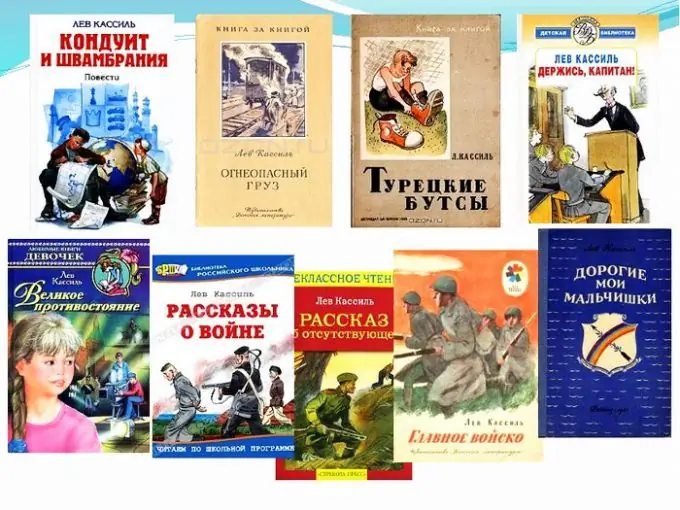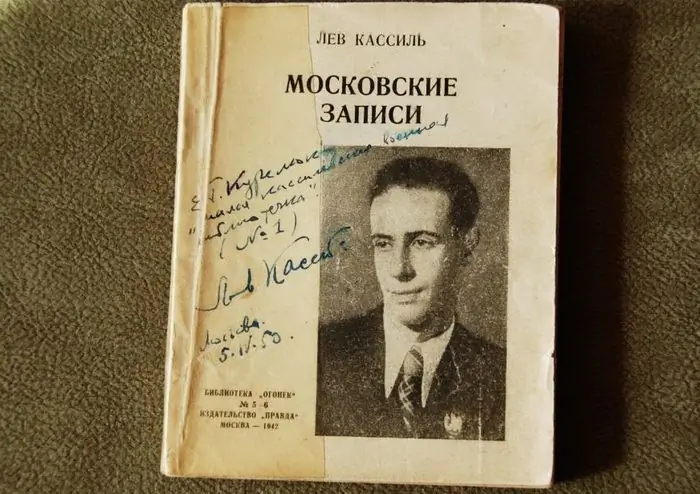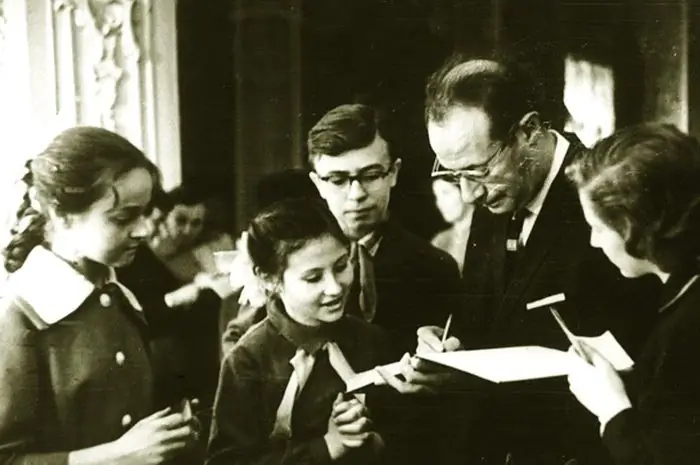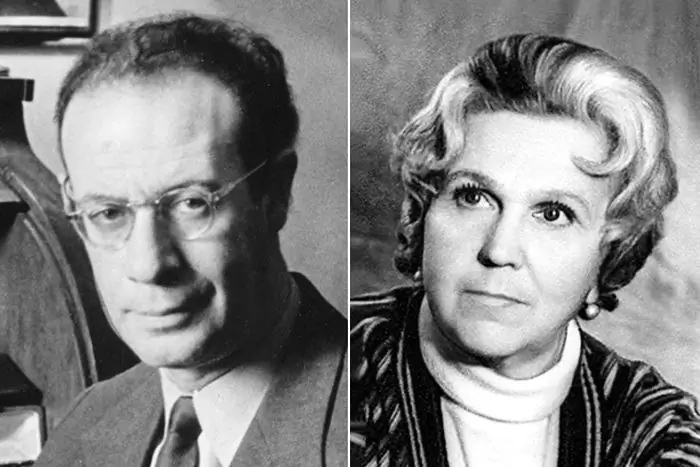- Author Antonio Harrison [email protected].
- Public 2023-12-16 07:44.
- Last modified 2025-01-22 21:44.
Lev Kassil is a well-known children's writer, laureate of the USSR State Prize and the Stalin Prize, a passionate fan of football and skiing, an enthusiastic explorer of childhood, who created incredible countries "Shvambrania", "Dzhungakhora" and "Sinegoria" for this on the pages of his books.

Childhood and youth
Lev was born in the Saratov region in the family of a doctor and a music teacher in 1905, on June 27 according to the old calendar. Of course, the home education of a boy from an intelligent family perfectly complemented the classical school knowledge. Having entered the gymnasium even before the October Revolution, he graduated from it, only already renamed the Labor School, in 1923.
Lev's hometown was Pokrovskaya Sloboda, which the revolution gave a new name - Engels. Here, during his school years, the future famous writer collaborated with the library, publishing a handwritten magazine for little schoolchildren.
After graduating from school, Kassil went to the capital, where he studied for three courses at Moscow State University. It was then that the famous "Moscow Records" was born - unable to cope with the thirst to write, the young man scribbled home voluminous letters, telling about everything he saw in Moscow. About houses, about people, about traditions and parks. At home, Oska's younger brother carried these sketches to the local newspaper, receiving a small fee for excellent sketches about the capital.

By the way, years later, in 1937, Lev's brother Joseph was repressed and shot, and his widow and her children were exiled to Dzhezkazgan.
Writing career
Like many colleagues, Lev Abramovich Kassil began by writing simple articles for various magazines and newspapers. Then serious feuilletons and journalistic investigations began to come out from under his pen, he collaborated with Mayakovsky, described the entire epic of Schmidt and devoted a lot of effort to scientific achievements and great travelers.
But most of all, the young author gravitated towards children's literature. In the 1930s, the legendary autobiographical Conduit and Schwambrania were published, in 1938 - The Goalkeeper of the Republic about a boy who became a football legend, and in 1941 Kassil became editor in the Soviet children's magazine Murzilka. He spoke on the radio, wrote books about the wonderful (and scientific!) Adventures of boys and girls, spent holidays at the House of Unions, children recognized him on the streets, and he was going to devote his whole life to them.

But the Second World War confused the literary plans of the talented guy. He had considerable experience as a war correspondent and often appeared on the radio and in factories, telling people about the horrors of war and raising their morale. After the victory, he became the head of the children's literature department at the Gorky Institute and one of the leading writers for the pioneer organization. Until his death, Kassil organized many parties and workshops for children and wrote wonderful books for them, filled with exciting adventures and movie scripts.
Personal life and death of the writer
The first wife of Lev Kassil gave him two sons - Dmitry and Vladimir. But it was the second wife that became the real love of the writer. The daughter of the opera singer Sabinov, a sophisticated woman Svetlana. In marriage, they had a daughter, Irina. All children have chosen the path of the creative intelligentsia and made an invaluable contribution to Russian history.

The beloved writer of Soviet children died a little before his 65th birthday, on June 21. He wrote in his diary that he was unlikely to be able to go to Leningrad, where he was invited as an honorary guest at the pioneer rally: "I can hardly … I have no strength," and died a few hours later while watching the final match of the 1970 World Cup.






